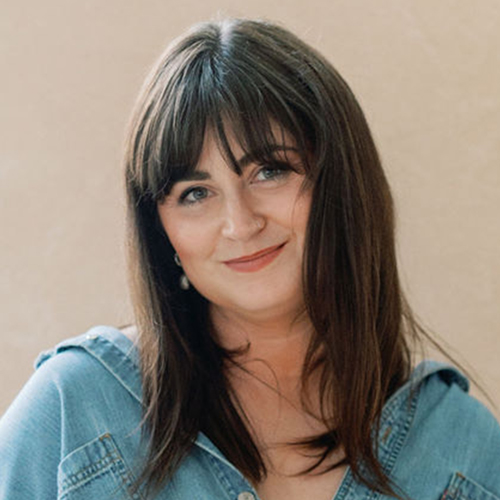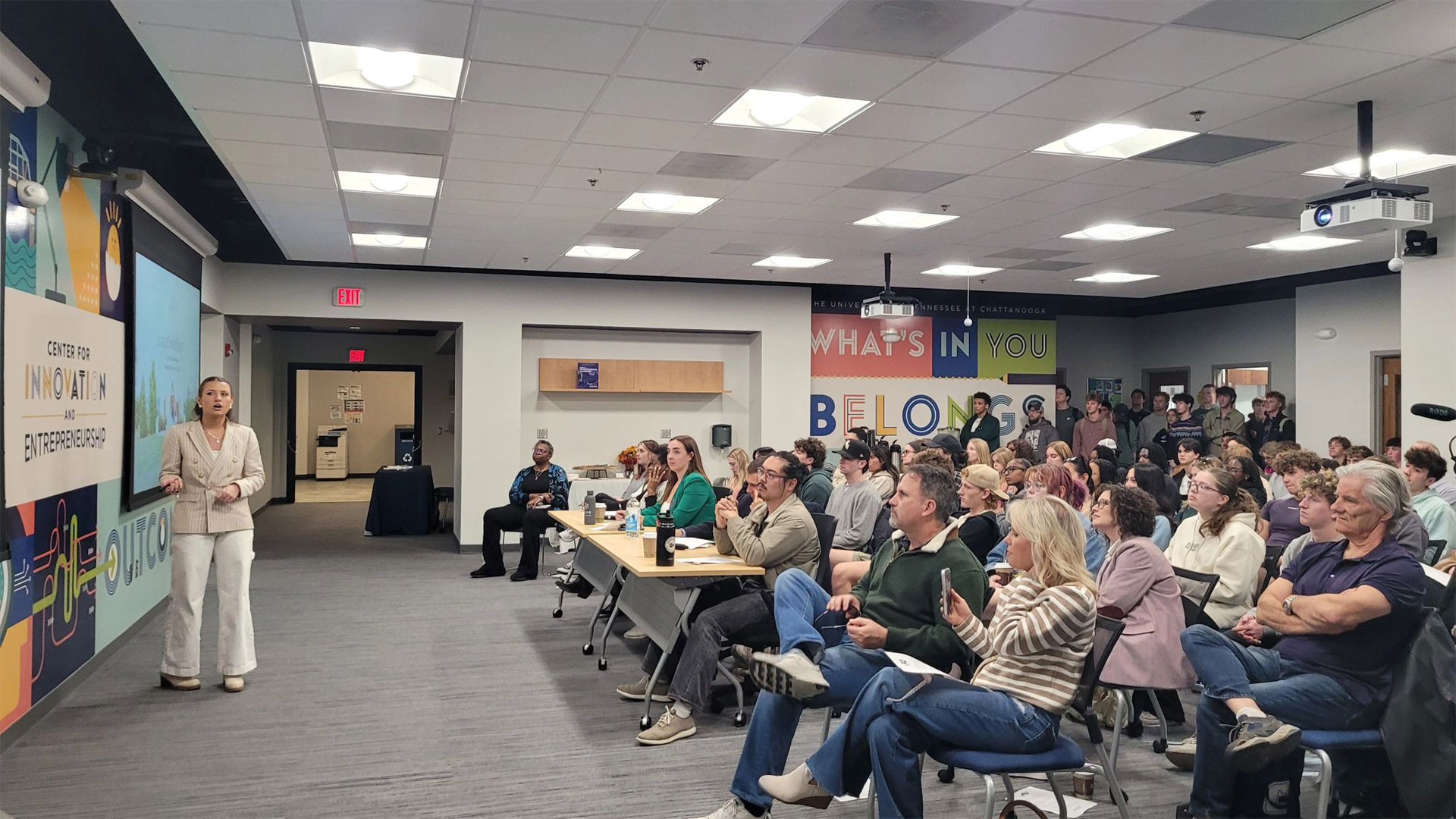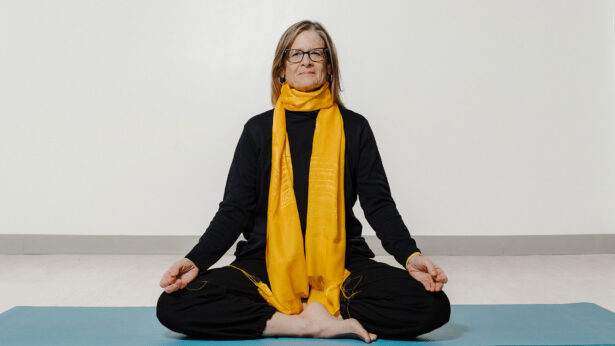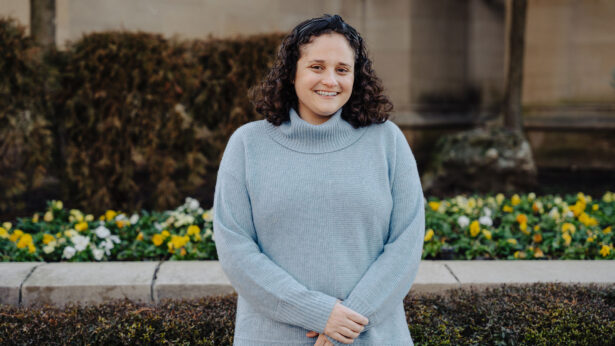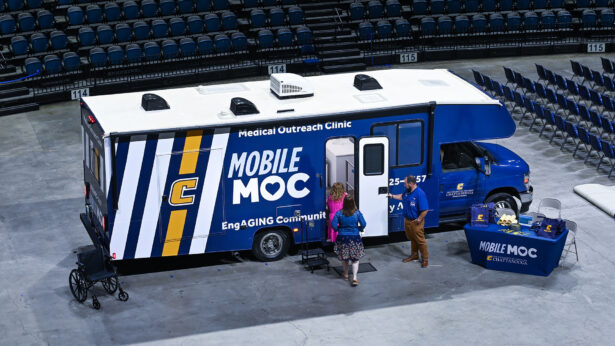Some entrepreneurs follow their childhood dreams, and others find inspiration later in life. Some invent a new product or technology and take it to market. Others open their own businesses, restaurants, law or medical practice or studio. What they have in common is determination, ambition and creativity. These entrepreneurs started their own businesses while still students at the University of Tennessee. Some entrepreneurs follow their childhood dreams, and others find inspiration later in life. Some invent a new product or technology and take it to market. Others open their own businesses, restaurants, law or medical practice or studio. What they have in common is determination, ambition and creativity. These entrepreneurs started their own businesses while still students at the University of Tennessee.
Healthy App
Ana Morris, an entrepreneurship major, turned a personal experience into a winning pitch during the fall 2024 Center for Innovation and Entrepreneurship’s Fly! Mocs Business Pitch Competition. Morris’ pitch, an app to help users identify and purchase FDA-approved nutritional supplements, was inspired by her recovery journey.
“In high school, I was big into sports,” she says. “Sophomore year, I was the starting varsity soccer goalkeeper, but during one game I got kicked in the head and knocked out. That was my first of six concussions that year.”
Struggling with severe headaches and noise sensitivity, Morris says her mother’s research led her to try magnesium and fish oil supplements. “After about three months, my headaches were pretty much gone, and I felt so much better,” she recalls. Drawing on that experience, Morris developed the idea for Pill Head, an app that allows users to input health concerns or goals and receive tailored supplement recommendations.
With faculty encouragement, she entered Fly Pitch—a competition challenging students to deliver a four-minute presentation to judges and an audience—and earned $1,000 to work on the concept. “I’ve been experimenting with website apps and meeting with faculty to see how I can make this happen,” she says.
— Chuck Wasserstrom
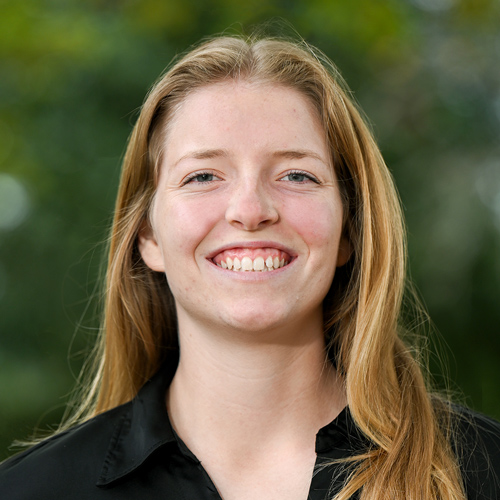
Personalized Putters
The Tuber brothers moved to Knoxville from Buffalo, New York, to study at UT Knoxville’s Haslam College. While pursuing their degrees—Tony in marketing, Mike in finance—they developed an idea for a business of their own.
Tony, an avid golfer, couldn’t find a putter that gave him the consistent results he wanted. He teamed up with Mike, who is scheduled to graduate in May, to co-found T Squared Putters, which fully customizes putters for each golfer’s needs.
In spring 2024, the brothers took first place and $1,500 at the Anderson Center’s Vol Court Pitch Competition. Later that semester, they placed first and won $5,000 in the center’s Graves Business Plan Competition. Beyond the prize money, the Tubers found the pitch preparation process to be extremely valuable. Working with the Anderson Center, they could see their business from an outsider’s perspective and address problems they hadn’t recognized before.
Although T Squared Putters is still a young company, it already has gained renown among golfers and has been featured in national golf publications. As their venture continues to grow, the Tuber brothers strive to be recognized for producing the industry’s highest-quality putters.
— Stacy Estep
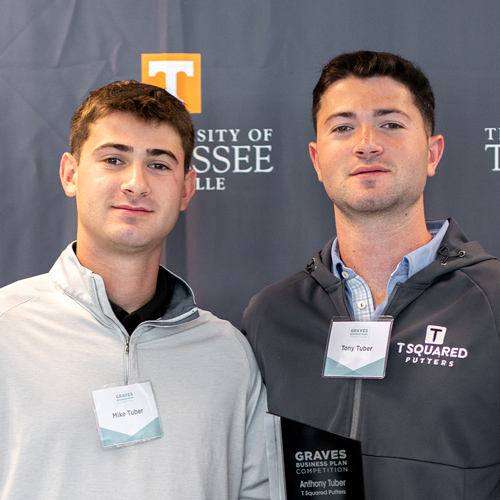
Fashion Fits All
Mary Cayten Brakefield, of Nashville, began her time at UT Knoxville as a Lady Vol swimmer. But, during her sophomore year, after her swimming career was cut short by a diagnosis of Ehlers-Danlos Syndrome and dysautonomia, the retail and consumer sciences major turned her energy toward another passion—fashion.
She’d been sewing her own clothes since high school and began channeling those skills into helping people with disabilities get dressed easier. She started designing clothes with adaptive features, such as pull tabs for wearers who have difficulty operating traditional fasteners.
In her senior year, Brakefield pitched her adaptive fashion line at the Anderson Center’s Graves Business Plan Competition and Boyd Venture Challenge and won $12,000 in total. The startup funding helped her conduct market research, work toward patenting her designs’ unique features and prepare for full-scale production. With her mother, Stephanie Brakefield, she co-founded Brakefields LLC. The brand launched its first public collection in 2022.
Today, Brakefields offers a line of functional, fashionable designs with optional accessibility customizations. The mother-daughter team enjoys shining a spotlight on universal design concepts like extended sizing and adjustable hem lengths, with hopes that these features will become the mainstream norm.
— Stacey Estep
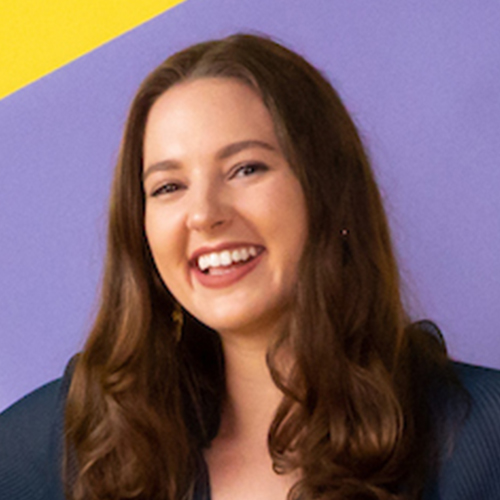
Two-Time Entrepreneur
Graham Taylor first connected with the Anderson Center while working on his doctorate in biomedical engineering at UT Knoxville. He’d already earned bachelor’s and master’s degrees in the subject and was in the early phases of starting his own medical technology company, T&T Scientific. At the center, he found helpful mentors eager to share their experience and offer guidance about financial plans, accounting and more.
Pitching his startup in the center’s Boyd Venture Challenge in 2015 and 2016, Taylor won a total of $12,000, which helped him set up an initial facility. Through the center, he also made valuable connections with investors and business development professionals who helped T&T Scientific launch and grow. Taylor led the company until 2022.
Since then, he has served as president of Helix Biotech, a company he founded that offers a variety of innovative products and services to help pharmaceutical companies introduce cutting-edge medicines to the global market. Bringing his entrepreneurial journey full circle, Taylor returned to the Anderson Center in 2023 as a judge for the Boyd Venture Challenge.
— Stacy Estep

Hometown Boutique
Emma Morgan grew up on a farm and thought she wanted to follow in her mother’s footsteps and be a veterinarian. When she realized that was not the right path for her, Morgan figured agriculture was certainly in her future. Instead, another idea presented itself, and she took a chance.
Five years later, Ada Bea’s Boutique is a thriving small business in Jefferson City, Tennessee, not far from her family’s Grainger County beef cattle farm. “I never anticipated that this is where I would end up,” she says. “The personal relationships I have formed with customers is one of my favorite parts. I get to go to work and do something I love every day.”
Morgan started her clothing, accessories and gift shop as an online business while still a Herbert College of Agriculture student. “I have always enjoyed shopping and clothing, so I decided to give it a shot,” she says.
A food and agricultural business major, Morgan even used her shop as a project in a Department of Agricultural and Resource Economics class about how to run a business. “My time in the AREC department taught me a lot,” she says. “I learned skills that I use every day as an entrepreneur.”
After graduation, Morgan had opportunities to work in the agricultural field farther away from home, but instead she signed a lease on a space just a few short weeks after graduation.
The business soon needed a larger space and is now located in a 100-year-old home that Morgan has turned into a brick-and-mortar shop.
— Elizabeth A. Davis
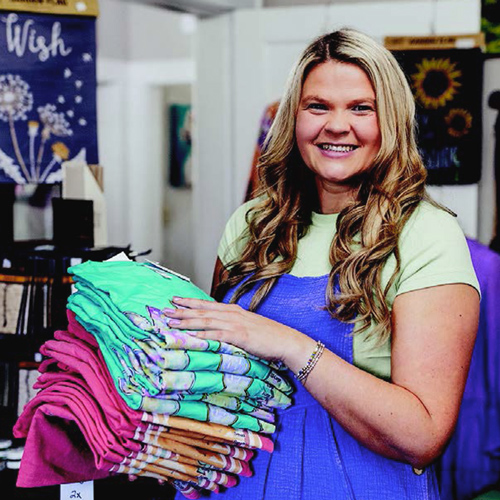
Flourishing Florista
Since childhood, Meg Hutchinson dreamed of becoming a florist. While majoring in supply chain management at UT Knoxville, the Franklin, Tennessee, native began making that dream a reality when she launched her business, The Florista, in her apartment.
Hutchinson got involved with the Anderson Center, where she received mentorship and resources to help her build her business. She entered the center’s pitch contests—Vol Court, Boyd Venture Challenge and Graves Business Plan Competition—and received a total of $19,500 in startup funding. Those wins gave her the confidence and capital to take her venture to the next level.
The summer after graduation, Hutchinson won $10,000 from the Victoria’s Secret Pink GRL PWR Project, a national competition that helps young women pursue their dreams. Through connections she made in that contest, she received an order for 250 floral arrangements for the Teen Vogue Summit in Los Angeles, giving The Florista brand its first national exposure.
Since then, the company has continued to grow. Now based in Nashville, Hutchinson and her team specialize in creating elegant custom floral designs for weddings, corporate events and other occasions all over the country.
— Stacy Estep
